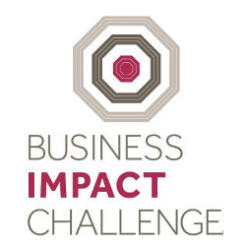The sector must encourage corporates to think about how they can generate more social impact, says Geetha Rabindrakumar. A new prize from Big Society Capital is intended to help that happen.
What next for charity-corporate partnerships?
Every charity fundraiser knows the potential of engaging corporate supporters. Charities gain a range of benefits from these relationships – obviously donations, but also time, expertise and channels to increase awareness of their cause through employees and customers. Income from corporates has been at around £2bn per year (only 5 per cent of the charity sector’s income) – but in a climate where corporate giving is unlikely to significantly increase, charities need to consider working with corporates differently to achieve social change in a much bigger way.
Launch innovative collaborations
Some charities have already been very innovative in collaborating with corporates to achieve their social mission in a much bigger way
For example, the Samaritans worked with Network Rail in a 3 year partnership to reduce incidence of suicides on the railways, through providing support to vulnerable people and staff at stations. RNIB have worked with technology and TV companies to develop digital TVs/set top boxes with talking technologies that are accessible for people with sight loss, helping them to remain independent at home, and reducing feelings of isolation. These partnerships are driven by the charity’s understanding of social need and effective interventions, combined with different expertise and connections of the corporate.
Capitalise on corporate needs
But charities will be missing a trick if they don’t capitalise on the growing interest of corporates in aligning their business objectives with their socially responsible activities.
This is a challenge for charities who need to look for corporate partners with overlapping interests, whilst considering possible reputation and ethical issues. But there is also an opportunity for charities to initiate ideas that lead to innovations for both partners, and to help transform business approaches, making social issues and inclusion more integral to how corporates work and the services they provide. The opportunity to transform public perceptions of “beneficiaries” was a key attraction to working with corporates when I was at Scope - disabled people are also potential consumers, and well supported ex-offenders can be high-performing employees.
It’s already happening - through corporates making social investments into charities and social enterprises.
Social investment models
Large corporates can be well positioned to contribute both investment funds and commercial expertise to help develop financially sustainable business models. Given this, and expectations for a more responsible form of capitalism from both the public and government, I’d expect to see increased involvement from corporates in social investment. One example is Centrica, who in 2013 set up Ignite, a £10m social investment fund to invest social enterprises in the energy sector. This approach could be replicated in other sectors, for example construction companies investing into organisations that support those furthest from work into apprenticeships.
Investment approaches could also offer a more effective way to create strong partnerships with a shared interest in delivering social outcomes and financial results compared to the traditional donor relationship – this could be through joint ventures between corporates and charities investing into technology for people with support needs.
Other emerging models include corporates that commission social outcomes from charities. Meeting the West London Zone recently gave me a fascinating insight how future innovation might work. They are a partnership of VCSE organisations, seeking to support disadvantaged children to reach adulthood safely rather than in unemployment or prison. They want to transform service delivery for this group, and to develop a mixed funding model that could include local companies alongside public agencies and philanthropists, commissioning preventative services for young people at risk.
Business Impact Challenge
The Business Impact Challenge prize offers a great opportunity for charities to get in on the action
The Business Impact Challenge Prize was recently launched by Big Society Capital to catalyse social investment by corporates. We’re looking for corporate-led initiatives to develop investment ideas that create social impact with the opportunity to receive match investment of up to £15 million from BSC. It’s great to see that this has already sparked interest for corporates and charities alike, with initial ideas addressing a range of issues including unemployment, health and homelessness.
I often hear from charities that they are uncertain about whether social investment could impact on the donations they receive, but this is a great opportunity to maximise both. Social investment offers an additional way for corporates to partner with charities, potentially bringing funding at real scale to tackle social issues and perhaps bringing about more lasting change than cause-related marketing or employee fundraising initiatives.
It was reported last year that FTSE 100 companies were holding £53bn surplus cash on their balance sheets because they are finding few ”alternate uses” for shareholders’ money. I’m sure there are plenty of charities and social enterprises who could combine forces with corporates to identify innovative ways to invest some of those assets to benefit both shareholders and society.









